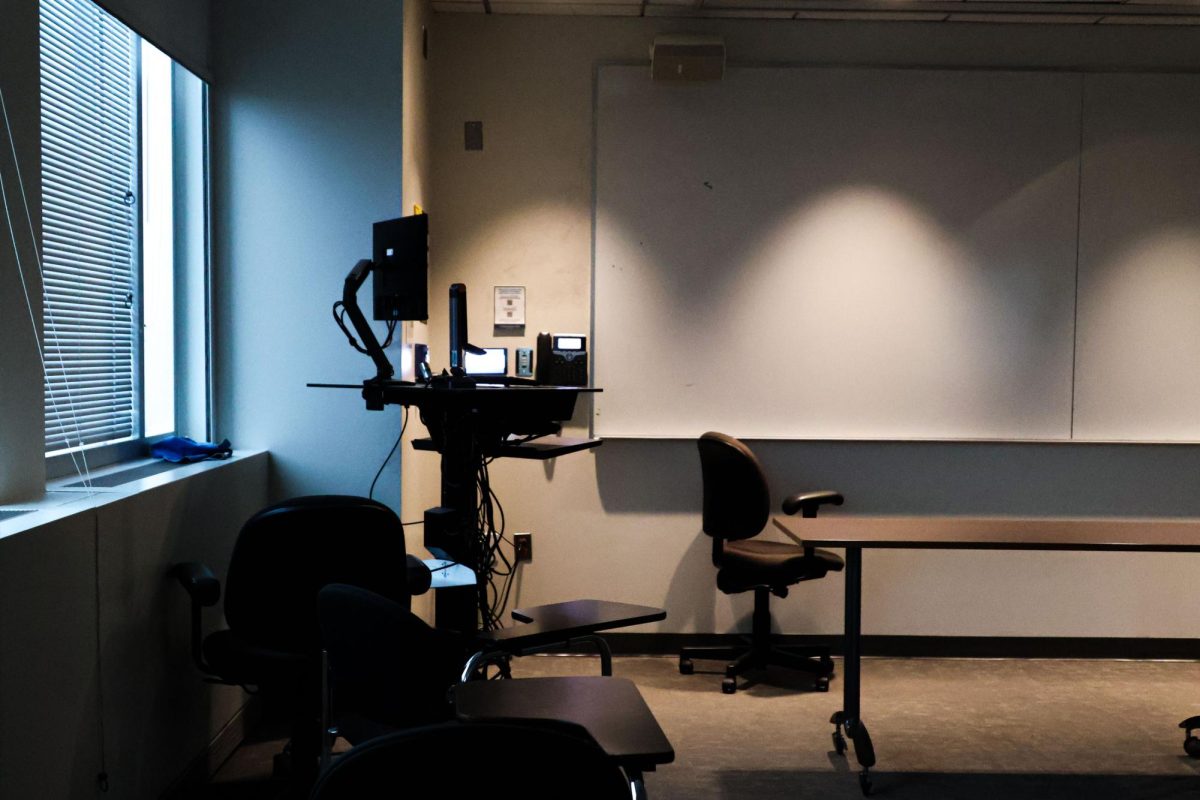Following a national trend toward an increased focus on college students’ writing skills, GW will introduce a new freshman writing course this fall. The four-credit class – University Writing 20 – will replace the traditional freshman English requirements and focus heavily on writing skills.
In the weeks prior to Colonial Inauguration, 700 randomly selected incoming freshmen from the Columbian College of Arts and Sciences and the Elliot School of International Affairs were notified that they would participate in the program.
The remaining freshmen – who were not selected to participate in University Writing 20 – will take GW’s current introductory English requirements, English 10 and 11. Each of the classes is worth three credits and lasts one semester.
The 300 students taking University Writing 20 in the fall will register for it along with their other classes at CI. Sample topics for the course include Fear Factor: Culture of Fear in America; War and Memory in the 20th century; You’ve Got Mail: The Social Side of Information Technology and Mayhem and Magic: Writing About New Media. Multiple sections of some topics will be available.
“The focus of University Writing 20 will be intensive writing that includes significant editing towards a production of a given product,” said Donald Lehman, executive vice president for Academic Affairs. “Students will be challenged to write in a way to make them analytical problem solvers and critical readers.”
Phyllis Ryder, director of the writing program, said students in the first-year course will complete a 25- to 30-page research paper at the end of the semester. Although Ryder said she will discuss syllabi with professors over the summer, professors will help students prepare for writing the paper by giving students a series of assignments, and focusing on different areas of research papers such as writing annotated bibliographies.
“I think many of our students are (prepared for college writing) to the extent that they come in understanding how to write a solid, informative paper,” Ryder said. “(College writing is about) moving from informative to analytical.”
Each class will consist of 14 students. Students will meet three times a week, two times for 75 minutes and once for 50 minutes.
“The primary goal of the writing program is to increase students engagement in academic matters. The second goal is to improve their writing overall,” said Associate Vice President for Academic Affairs Craig Linebaugh, a member of the taskforce that developed the program.
After University Writing 20 is completed, students will be required to take two more intensive writing courses within their specific disciplines.
“We expect over time all departments to do this. Even in science, you can do that because laboratories require laboratory reports,” Lehman said.
Professors from each discipline will teach the upper-level courses, which will show students that faculty members in all fields find writing important, Ryder said.
Administrators said they hope that all departments will create a writing goal for students in their senior year.
“We would like there to be some sort of significant capstone experience for seniors that includes a substantial writing product,” Linebaugh said.
Administrators said they plan to phase out English 10 and 11, which have been around for more than 15 years. In the 2004-05 school year, 1,600 freshmen will take University Writing 20, and in the 2005-06 year all entering freshmen will take the course.
Traditionally, students have had the ability to bypass English 10 and 11 by scoring a four or five on the Advanced Placement English Language and Composition and English Literature and Composition exams. A score of 710 on the SAT II Writing exam also places a student out of English 10, but without credit for the class. The three courses that make up the new writing program, however, will be required for all students.
“There will be no way to exempt out,” Lehman said.
The program will also be separate from the English department. English 10 and 11 have traditionally been taught by professors of the English department.
“There will be a reduction in the number (of faculty) in the English department, but not necessarily a reduction in the number of faculty overall,” Lehman said.
Thirteen faculty members will be teaching University Writing 20 next year, eight of whom have recently been hired.
The University has allocated $350,000 for the launch of University Writing 20, which includes money reallocated from English 10 and 11.
The idea for the new program began in the Council of Deans in 1998. The group, consisting of deans and other administrators from the University, was concerned over the quality of students’ writing when they went to upper-level courses. In 2002, the program was proposed by Lehman to the Committee of Strategic Planning on Academic Excellence.
The writing program is one of the University’s efforts to improve academics, administrators said.
“This is in part a response to what is happening nationally. We’re trying to move GW into the first-tier institutions. We need an outstanding undergraduate education. Students leave the University who can communicate and articulate their thoughts in all kinds of format,” Lehman said.
Nationally, about half of today’s college freshmen must take at least one remedial course in college, and more than a quarter of those enroll in a remedial writing course, according to the spring ACT National Curriculum Survey of high school teachers and college faculty who teach entry-level courses.
The report attributed the poor writing skills to a discrepancy between what high school and college teachers consider most the most important writing skills. While high school teachers put the most emphasis on writing strategy, college professors ranked grammar and usage as the most important skills.
The report concluded that while grammar and usage should not be taught alone, high schools may not effectively integrate those skills into its classes.
Ryder said while high school teachers generally focus more on the writing process, college professors look for a finished product from their students.
Kristin Carnahan, director of public affairs for the College Board’s National Commission on Writing in America’s Schools and Colleges, said that writing in college is more about “synthesizing what you’re learning” than high school writing.
Carnahan said in August, when the College Board surveyed students before they took the SAT, the majority of students reported that they were taking fewer grammar and composition courses in high school, and more classes in higher-level mathematics.
Carnahan said she does not know whether taking fewer English classes is a direct cause of poor writing skills, but it may be a contributing factor.
Although GW administrators said students at the University are “bright” and have high SAT scores and grades, some said first-year students are not completely prepared for college writing and academics when they arrive.
Cheryl Beil, director of Academic Planning and Assessment, said “different demands are made of college students,” than high school students, noting some classes at GW only have a midterm and final exam.
She said exams at the university level make students analyze and apply information, while some students only had to memorize information in high school.
To acclimate to college academics, Beil suggested that students set up a study schedule, using time in between classes to go to the library rather than socialize. She also students should re-write their notes directly after class and integrating readings assigned for class into their notes.






